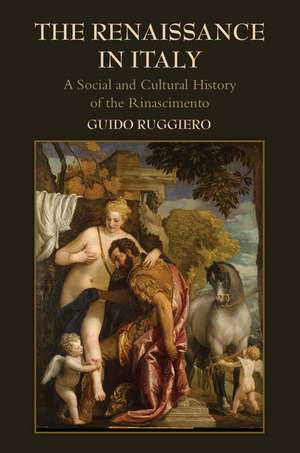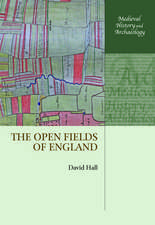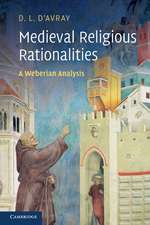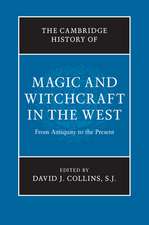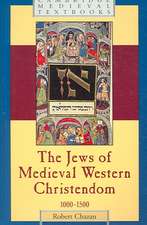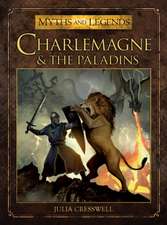The Renaissance in Italy: A Social and Cultural History of the Rinascimento
Autor Guido Ruggieroen Limba Engleză Paperback – 21 dec 2014
| Toate formatele și edițiile | Preț | Express |
|---|---|---|
| Paperback (1) | 243.24 lei 3-5 săpt. | +59.08 lei 7-13 zile |
| Cambridge University Press – 21 dec 2014 | 243.24 lei 3-5 săpt. | +59.08 lei 7-13 zile |
| Hardback (1) | 760.02 lei 6-8 săpt. | |
| Cambridge University Press – 21 dec 2014 | 760.02 lei 6-8 săpt. |
Preț: 243.24 lei
Nou
Puncte Express: 365
Preț estimativ în valută:
46.57€ • 48.40$ • 38.61£
46.57€ • 48.40$ • 38.61£
Carte disponibilă
Livrare economică 16-30 ianuarie 25
Livrare express 02-08 ianuarie 25 pentru 69.07 lei
Preluare comenzi: 021 569.72.76
Specificații
ISBN-13: 9780521719384
ISBN-10: 0521719380
Pagini: 648
Ilustrații: 33 b/w illus. 3 maps
Dimensiuni: 153 x 230 x 37 mm
Greutate: 0.93 kg
Editura: Cambridge University Press
Colecția Cambridge University Press
Locul publicării:New York, United States
ISBN-10: 0521719380
Pagini: 648
Ilustrații: 33 b/w illus. 3 maps
Dimensiuni: 153 x 230 x 37 mm
Greutate: 0.93 kg
Editura: Cambridge University Press
Colecția Cambridge University Press
Locul publicării:New York, United States
Cuprins
1. Legitimacy: a crisis and a promise (c.1250–c.1340); 2. Civiltà: living and thinking the city (c.1300–c.1375); 3. Plague: death, disaster, and the rinascita of civiltà (c.1325–c.1425); 4. Violence: social conflict and the Italian Hundred Years War (c.1350–c.1454); 5. Imagination: the shared primary culture of the early Rinascimento (c.1350–c.1475); 6. Courts: princes, aristocrats, and quiet glory (c.1425–c.1500); 7. Self: the individual as a work of art (c.1425–c.1525); 8. Discovery: finding the old in the new (c.1450–c.1560); 9. Re-dreams: virtù, saving the Rinascimento, and the satyr in the garden (c.1500–c.1560); 10. Reform: spiritual enthusiasms, discipline, and a church militant (c.1500–c.1575); 11. Retreat: the great social divide and the end of the Rinascimento (c.1525–c.1575).
Recenzii
'A master historian of the Renaissance offers us a fascinating new means of understanding and appreciating Italy's cultural development in the period between the ancient and the modern world. This is essential reading for undergraduate and graduate students across the disciplines as well as travelers off to explore the wonders of Italian civilization.' Joanne M. Ferraro, San Diego State University, and author of Venice: History of the Floating City
'At a moment when many social and cultural historians have turned away from the very idea of the Italian Renaissance altogether or, at most, reduced it to an elitist movement, Ruggiero's bold new synthesis calls on all of us to reconsider. Perhaps it still does make sense to think of the Renaissance as a decisive moment in the making of modern and even postmodern culture.' John Jeffries Martin, Duke University, North Carolina
'The most imaginative and compelling survey of the Italian Renaissance available now. Lively, informed and thought-provoking, it presents the newest research and the best of current approaches to literature and culture in a very readable style by a master historian at the top of his game.' Nicholas Terpstra, University of Toronto
'In this long book, Ruggiero rejects recent scholarship that has minimized the significance of the Italian Renaissance. Instead, he argues that the cities of Florence, Venice, and Milan enjoyed a distinct period of precocity over the rest of Europe between roughly 1300 and 1500 … A thorough and accessible introduction to northern Italian history during this important period. Summing up: recommended.' B. J. Maxson, Choice
'In The Renaissance in Italy I have discovered the sophisticated analytical survey that I have for some years wanted to prescribe for the 250 or so undergraduates who elect every year to study Renaissance Italy in my department at Sydney. Again and again Ruggiero presents complex problems as questions of the type that one can hear oneself posing to bright young students, such as whether non-elite women and men would have had any awareness of - let alone a stake in - the Rinascimento culture that is the subject of this excellent book. I am happy to confess that many of Ruggiero's artfully framed questions have got me thinking as well.' Nicholas A. Eckstein, Journal of Social History
'Providing a comprehensive and concise history of approximately three centuries is no small task. Guido Ruggiero's The Renaissance in Italy rises to the challenge, presenting readers with an intellectually ambitious, erudite and engaging narrative of Italy's social and cultural contours between 1250 and 1575. In the process, Ruggiero touches on the ways that we as scholars and students have excavated, told and re-told our stories of a period both contested and persistently figured as pivotal to the development of European modernity.' Sean Roberts, European History Quarterly
'At a moment when many social and cultural historians have turned away from the very idea of the Italian Renaissance altogether or, at most, reduced it to an elitist movement, Ruggiero's bold new synthesis calls on all of us to reconsider. Perhaps it still does make sense to think of the Renaissance as a decisive moment in the making of modern and even postmodern culture.' John Jeffries Martin, Duke University, North Carolina
'The most imaginative and compelling survey of the Italian Renaissance available now. Lively, informed and thought-provoking, it presents the newest research and the best of current approaches to literature and culture in a very readable style by a master historian at the top of his game.' Nicholas Terpstra, University of Toronto
'In this long book, Ruggiero rejects recent scholarship that has minimized the significance of the Italian Renaissance. Instead, he argues that the cities of Florence, Venice, and Milan enjoyed a distinct period of precocity over the rest of Europe between roughly 1300 and 1500 … A thorough and accessible introduction to northern Italian history during this important period. Summing up: recommended.' B. J. Maxson, Choice
'In The Renaissance in Italy I have discovered the sophisticated analytical survey that I have for some years wanted to prescribe for the 250 or so undergraduates who elect every year to study Renaissance Italy in my department at Sydney. Again and again Ruggiero presents complex problems as questions of the type that one can hear oneself posing to bright young students, such as whether non-elite women and men would have had any awareness of - let alone a stake in - the Rinascimento culture that is the subject of this excellent book. I am happy to confess that many of Ruggiero's artfully framed questions have got me thinking as well.' Nicholas A. Eckstein, Journal of Social History
'Providing a comprehensive and concise history of approximately three centuries is no small task. Guido Ruggiero's The Renaissance in Italy rises to the challenge, presenting readers with an intellectually ambitious, erudite and engaging narrative of Italy's social and cultural contours between 1250 and 1575. In the process, Ruggiero touches on the ways that we as scholars and students have excavated, told and re-told our stories of a period both contested and persistently figured as pivotal to the development of European modernity.' Sean Roberts, European History Quarterly
Notă biografică
Descriere
This book offers a rich and exciting new way of thinking about the Italian Renaissance.
